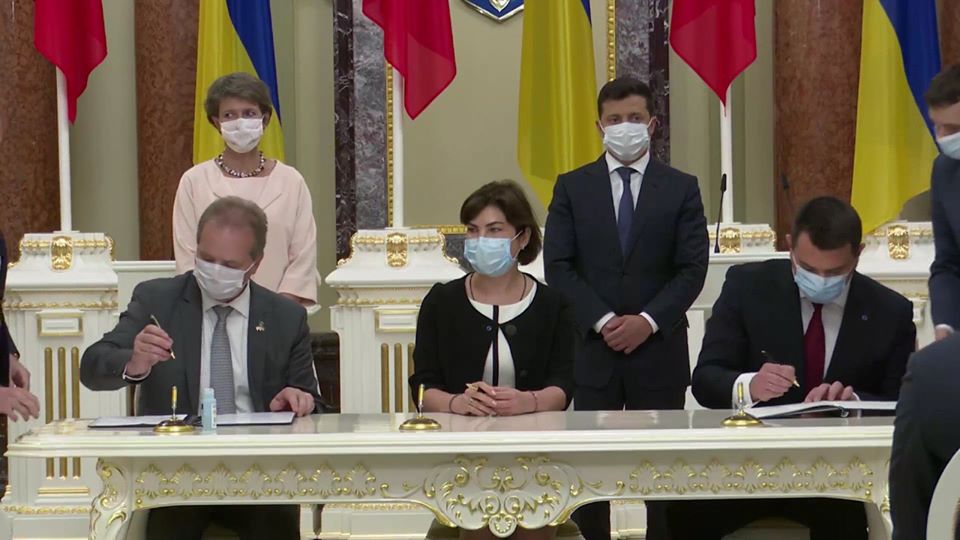Tripartite agreement brings fresh potential to the fight against corruption in Ukraine

Switzerland and Ukraine’s Office of the Prosecutor General (OPG) and National Anti-Corruption Bureau (NABU) have signed a tripartite Memorandum of Understanding on the occasion of the visit of the Swiss President to Kyiv.
Formally signed on 21 July, the MoU is the basis for the continued engagement of our International Centre for Asset Recovery (ICAR) with these two Ukrainian institutions in the fight against corruption.
Returning stolen assets to Ukraine
Our work in Ukraine started just after the 2014 Revolution of Dignity, also known as Euromaidan. In the context of this popular uprising, numerous jurisdictions, including Switzerland, the EU and other countries around the globe, froze assets belonging to former President Yanukovych and his entourage on suspicion of having been stolen through corruption.
The OPG and NABU, together with their foreign counterparts, are key players in the complex work to prove the illicit origin of these assets in Court so that they can be returned to the Ukrainian people and used for investments in essential social services and national development.
As our Managing Director, Gretta Fenner, commented: “We hope that this MoU will fast-track the return of the stolen money to Ukraine so it can be used for crucial services at a time when funding is in particularly short supply.”
ICAR engagement in Ukraine
With funding from the Swiss Agency for Development and Cooperation, we have been supporting this work with OPG and NABU since 2014. The MoU signed last week renews the commitment of Ukraine and the project donor Switzerland to this joint initiative to enhance Ukraine’s technical capacities to investigate and prosecute financial crimes and recover stolen assets.
Our assistance includes on-the-job mentoring for anti-corruption officials supplemented by tailored training initiatives ranging from intensive workshops to eLearning courses.
Drawing on its on-the-ground experience in Ukraine and around the world, ICAR is also well placed to advise on legislative and institutional reform related to anti-corruption and asset recovery efforts.
How does asset recovery help the fight against corruption?
Asset recovery plays a central role in preventing and combatting corruption, which remains a major sticking point for both Ukrainian people and foreign investors.
First, depriving criminals of their assets and enforcing anti-corruption laws help to lower incentives for criminals and reduce impunity.
Second, efforts to strengthen the asset recovery process have a positive impact on the effectiveness and quality of a country’s entire criminal justice system, which helps improves the rule of law and trust in governments and public institutions, thereby improving stability and the potential for equitable and sustainable development.
Asset recovery is exceptionally complicated and time consuming, but ICAR-supported cases have seen some significant breakthroughs. And thanks to on-the-job mentoring and structured training initiatives by ICAR and other organisations, Ukraine now has a pool of professionally trained officials who can be deployed in the country’s fight against financial crimes.



